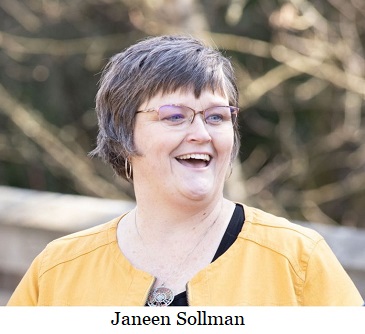Not recycling is bad enough. Fake recycling is an outrage.
A couple of Portland area Democrats have introduced legislation to curb fake recycling. Representatives Maxine Dexter (D-Portland) and Janeen Sollman (D-Hillsboro) have submitted
HB 2815 as a bill in the legislature. It has been assigned to the House Energy and Environment Committee. It has not yet been scheduled for a hearing.
The bill focuses the ubiquitous "chasing arrow symbol" found on many products which are recyclable or have recyclable packaging -- or perhaps are not recyclable. According to the bill, no person may sell any product that makes "deceptive or misleading claims" about it's ability to be recycled.
(b) A product that displays a chasing arrows symbol, a chasing arrows symbol surrounding a resin identification code or any other symbol or statement indicating the product is recyclable is deemed to be deceptive or misleading unless:
(A) The product is accepted for collection by a majority of recycling collection services in this state; or
(B) The product is labeled in accordance with labeling standards established by the Environmental Quality Commission under subsection (3) of this section.
The enforcement allows the DEQ to issue an order and if that fails, the courts may issue an injunction. Failure to heed, can lead to fines of up to $25,000 per day for each day of violation.
(1) In accordance with the applicable provisions of ORS chapter 183 relating to contested case proceedings, the Department of Environmental Quality may issue an order requiring compliance with the provisions of section 1 of this 2021 Act.
(2) The department, or any other person, may bring an action in a court of competent jurisdiction to enforce the requirements of section 1 of this 2021 Act. The court may grant injunctive relief pursuant to this subsection.
The bill is also sponsored by Representative Rob Nosse (D-Portland), Khanh Pham (D-Portland), and Rachel Prusak (D-West Linn).
Every county has different levels of recycling available. The "Chasing arrows symbol" simply means it is recyclable if the county is equipped to recycle. Counties don’t use the recycling symbol or numbers appearing in the triangle in their guidelines for recycling simply because they don’t sort or have outlets based on all products within the numbering. Packaging labels and recycling symbols are meant to help us identify how different types of packaging can be recycled. What is recyclable today may change as more outlets are created. The answer isn't a one size fits all answer with a heavy hand of a regulatory agency.
HB 2815 criticizes the misuse of symbols that is more importantly meant to indicate a health factor to humans and animals. The triangle symbol includes a number ranging from 1 to 7 that is a resin identification code that is used to help recycling plants sort materials. While you may think nothing of these symbols, they can actually offer a great deal of information regarding the toxic chemicals used in the plastic, how likely the plastic is to leach, how bio-degradable the plastic is, and ultimately the safety of the plastic. Symbols 2, 4, and 5 are used on plastics considered to be safest. These are the plastics to look for in terms of human and animal consumption. Avoid recycling symbols 3, 6, and 7. While Number 1 is considered safe, it is also best to avoid this plastic.
- Plastic #1 is found in peanut butter jars, plastic soda and water bottle, salad dressing bottles and is the most frequently recycled group. It is recycled into tote bags, furniture, carpet, paneling, fiber, and polar fleece.
- Plastic #2 is typically opaque and picked up by most curbside recycling programs. This plastic is one of the 3 plastics considered to be safe, and has a lower risk of leaching, such as milk jugs. recycled into pens, recycling containers, picnic tables, lumber, benches, fencing, and detergent bottles, to name a few.
- Plastic #3 is food wrap, plumbing pipes, and detergent bottles, and is seldom accepted by curbside recycling programs. This plastic is recycled into paneling, flooring, speed bumps, decks, and roadway gutters.
- Plastic #4 is Low density polyethylene found in squeezable bottles, shopping bags, clothing, carpet, frozen food, bread bags, and some food wraps. It is recycled into compost bins, paneling, trash can liners and cans, floor tiles, and shipping envelopes.
- Plastic #5 is Increasingly becoming accepted by curbside recycle programs, plastic #5 is also one of the safer plastics to look for. It is typically found in yogurt containers, ketchup bottles, syrup bottles, and medicine bottles. Polypropylene is recycled into brooms, auto battery cases, bins, pallets, signal lights, ice scrapers, and bicycle racks.
- Plastic #6 is Styrofoam, which is notorious for being difficult to recycle, and thus, bad for the environment. It is recycled into egg cartons, vents, foam packing, and insulation.
- Plastic #7 is a mix bag of plastics that includes polycarbonate, which contains the toxic bisphenol-A (BPA). These plastics should be avoided, but can be found in sunglasses, iPod cases, computer cases, nylon, 3- and 5-gallon water bottles, and bullet-proof materials. It is recycled into plastic lumber and other custom-made products.
Even though each level has many possibilities for reuse, Oregon has discouraged recycling industries with a focus on eliminating plastics. Rather than putting manufacturers in a tough position to label to fit all counties and multiple states, educating consumers on recognizing the health risk associated with the numbers might be more beneficial. Adding a label that the product may not be accepted for recycling solves nothing. In the end, plastics will still be used, but you can certainly limit your use of the product for health reasons by choosing glass instead of buying plastic water bottles or other plastic containers.
--Donna Bleiler| Post Date: 2021-01-24 17:54:28 | Last Update: 2021-01-24 20:25:22 |






